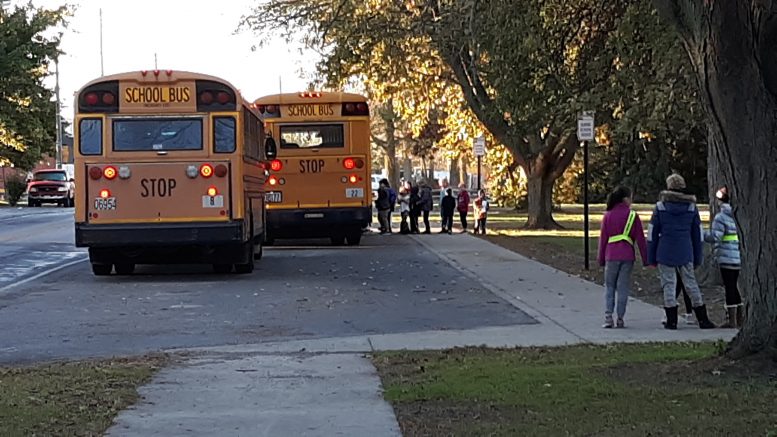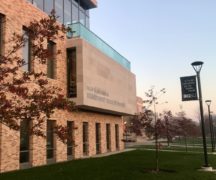By Susan Tebben
A bill originally introduced to expand student religious expression in schools was unanimously passed Wednesday by the Ohio Senate with numerous COVID-19-related amendments impacting schools next fall.
The bill was considered twice this week in the Senate Education Committee, when it was given a total of 18 separate amendments.
While the language from the original bill would allow religious expression at school to be treated in the same way as secular activities, much of the amendments came from Senate Bill 319 in response to coronavirus.
“It may be problematic as it relates to religious expression in schools,” said Sen. Teresa Fedor, D-Toledo. “But I’m very encouraged by the end result of this bill and the end result of these components.”
Amendments to the bill removed language that would allow furloughs for school employees instead of a reduction in force system.
Through the amendments, presented by SB 319 sponsor Sen. Matt Huffman, R-Lima, an appropriation from the general fund of $24 million will be given to schools to fill gaps created by budget cuts Ohio Gov. Mike DeWine instituted amid the coronavirus pandemic. Any cuts made to schools would be limited to 6%, according to Sen. Andrew Brenner, R-Powell, who presented the amendment Wednesday during the Education Committee hearing.
School psychologists would be able to provide services online, and school districts would be able to assign teachers to subjects outside of their licensure for the 2021 school year.
“We’ve got a bit of a problem coming up in the school year, so we need a little bit more flexibility,” Huffman said.
Students would be able to move from the third grade despite a failing score on the third grade reading assessment, as long as the school principal and reading teacher give evidence of the student’s ability to succeed.
Among other things, those wanting to serve on charter school boards and groups wouldn’t be limited to five as was previously the case, and certain ratings for charter and community schools wouldn’t be issued by the Ohio Department of Education.
The bill also extends a moratorium on school storm shelter construction until 2022.
The committee tabled an amendment regarding language in the bill that said teachers “shall not penalize or reward a student based on the religious content of a student’s work.”
Sen. Bill Coley, R-Liberty Township, said arguments had been made that the language could cause confusion as to whether the use of religious content can be used in the school work.
“It harkens back to the 1700s when the Founding Fathers were discussing the Second Amendment,” Coley told the committee on Wednesday. “I’m sure some well-meaning Founding Father thought it was a great idea to put in the need for a well-regulated militia into the Second Amendment, and 200-plus years later we are now saying that that causes confusion.”
The bill now moves to the House for reconsideration with the amendments.
***
Also from Capital Journal:
Amid other challenges, Medicaid department conducting massive overhaul
The Ohio Department of Medicaid is working on a complete revamp of the lion’s share of the $27 billion program amid complaints that it hasn’t made much progress on much smaller tasks.
The department is working to “reprocure” the services of the managed-care companies that represent more than 90% of Ohioans receiving benefits from Medicaid — the federal/state health program for the poor. And while the term “reprocurement” might have a bland, bureaucratic sound, the process is intensive, complex and can result in sweeping changes to the state’s most expensive program.
“What reprocurement does is it’s a reset,” said Lorenn Anthes, who leads the Cleveland-based Center for Community Solutions Center for Medicaid Policy. “It lets you create a different type of Medicaid program than had existed.” READ MORE





